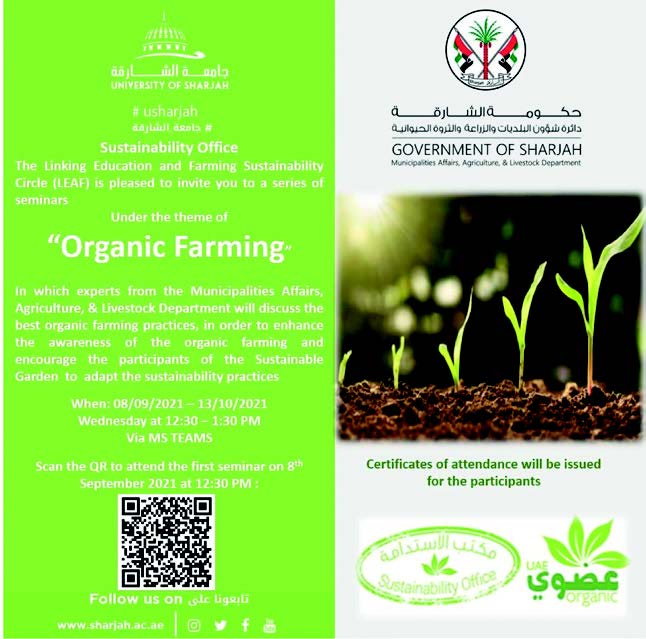
Introduction
This project focuses on improving soil quality, reducing greenhouse gas emissions, promoting organic farming, and expanding green spaces within the University of Sharjah (UOS) campus.
Project Overview
A composting system was introduced to convert biodegradable waste into organic fertilizer, encouraging sustainable waste management and organic food production. This initiative also raises awareness about the importance of food security and sustainability.
Method
Key Outcomes and Learnings
Since its launch, the project has produced 4,000 kg of compost from 7,200 kg of biodegradable waste, enhancing soil fertility and organic food production. The University of Sharjah became the first higher education institution to produce organic fertilizer, earning a certificate of conformity for organic crops from ESMA.
Organic crops are now grown in the greenhouse and supplied to supermarkets. A Zero Waste policy ensures food waste from university events is composted, while discarded water is used for irrigation. Students and stakeholders actively engage in organic farming, promoting food security and sustainability.
